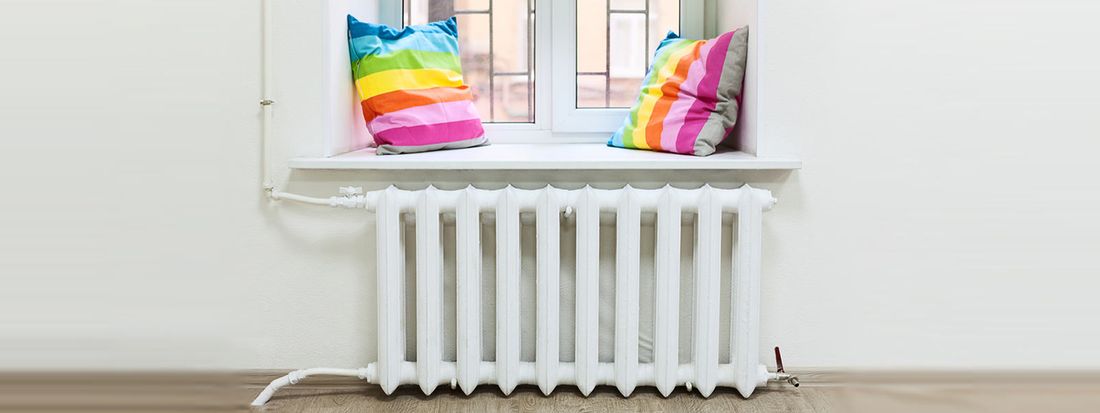The quality of the air we breathe plays a crucial role in our overall well-being. As we spend a significant portion of our lives indoors, the impact of indoor air quality on our health becomes increasingly significant.
Central heating systems, which are widely used to maintain comfortable temperatures in homes and buildings, can either contribute to or mitigate indoor air pollution. In this post, we will explore various ways to improve air quality with central heating systems, emphasizing both technological advancements and behavioural changes.
Regular Maintenance and Cleaning
One of the fundamental steps in ensuring good air quality is regular maintenance of central heating systems. Dust, dirt, and debris can accumulate in ducts, filters, and heating units, leading to the circulation of polluted air. Routine cleaning and filter replacement can prevent the buildup of contaminants and promote cleaner indoor air.
Advanced Filtration Systems
Upgrading to high-efficiency air filters can significantly enhance air quality. HEPA (High-Efficiency Particulate Air) filters are designed to trap smaller particles, including dust, pollen, and pet dander, providing a more thorough filtration process. Investing in these advanced filtration systems ensures a healthier indoor environment.
Humidity Control
Maintaining optimal humidity levels is crucial for preventing the growth of mold and dust mites, both of which can contribute to poor air quality. Central heating systems that incorporate humidity control mechanisms help regulate moisture levels, creating an inhospitable environment for indoor pollutants.
Ventilation Systems
Adequate ventilation is essential for exchanging indoor and outdoor air, reducing the concentration of pollutants. Central heating systems can be integrated with mechanical ventilation systems that bring in fresh outdoor air while expelling stale indoor air. Heat recovery ventilation (HRV) and energy recovery ventilation (ERV) systems are particularly effective in this regard.
Use of Clean Energy Sources
Transitioning to clean and renewable energy sources for central heating, such as geothermal or solar heating, can have a positive impact on both indoor and outdoor air quality. These systems produce fewer pollutants during operation, contributing to a healthier living environment and reducing the overall carbon footprint.
Zone Heating
Implementing zone heating allows for better control over temperature in different areas of a building. This can lead to more efficient energy use, as well as the ability to avoid overheating certain spaces. By optimizing heating distribution, zone heating minimizes the need for excessive energy consumption, thus reducing the release of pollutants.
Awareness and Education
Promoting awareness and educating users about the importance of air quality is vital. Encouraging responsible heating practices, such as avoiding the burning of certain materials or using the heating system judiciously, can contribute to a cleaner indoor environment.
Integration of Smart Technologies
Smart thermostats and heating systems equipped with sensors and automation capabilities can optimize energy use and improve air quality. These technologies can adjust heating levels based on occupancy, outdoor air quality, and other parameters, ensuring a comfortable and healthy indoor environment.
Carbon Monoxide Monitoring
Central heating systems that utilize fossil fuels may produce carbon monoxide, a colourless and odourless gas that poses severe health risks. Installing carbon monoxide detectors ensures early detection of any potential leaks, allowing for timely intervention and preventing health hazards.
Promoting Sustainable Building Practices
Architects and builders can play a role in improving indoor air quality by incorporating sustainable building practices. This includes designing spaces with ample natural ventilation, using low-emission materials, and creating energy-efficient structures that reduce the reliance on heating systems.
In conclusion, improving air quality with central heating systems involves a multifaceted approach that combines technological innovations with conscious user behaviour. Regular maintenance, advanced filtration, humidity control, and the integration of clean energy sources are just a few examples of the myriad ways to enhance indoor air quality. By adopting these measures, individuals, businesses, and communities can create healthier living and working environments while contributing to broader environmental sustainability goals.
If you have any questions or are in need of further advice, just call a member of the EVO Plumbing and Heating team who will be happy to help.
Freephone 0800 920 2030
Alternatively you can enquire online and we will get back to you shortly.

